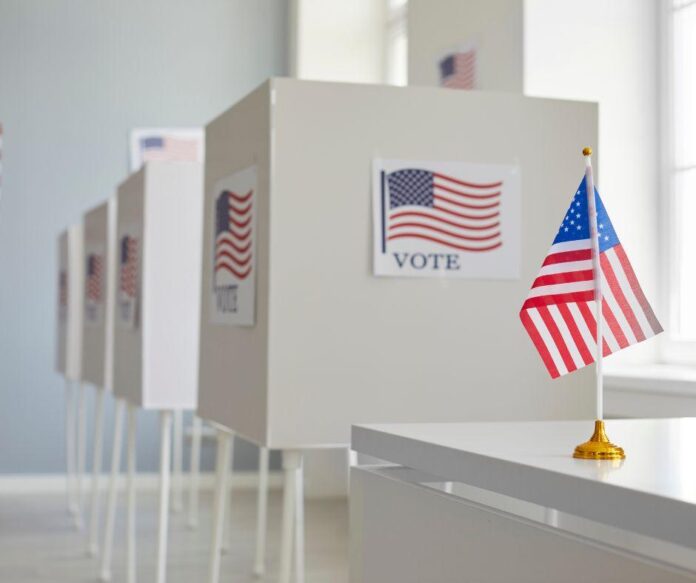In a recent landmark decision, the Nebraska Supreme Court unanimously ruled in three lawsuits that two competing abortion proposals to amend the state constitution can go on the November ballot. The rulings set up Nebraska voters to choose between a pro-life amendment that would enshrine the state’s current 12-week abortion ban into the state constitution or a pro-abortion amendment that would enshrine a right to abortion throughout all nine months of pregnancy.
As a result, Nebraska will be the first state to have competing abortion amendments on the same ballot. However, both cannot be enshrined into the state constitution. The one that receives the most “for” votes and has the support of at least 35 percent of voters casting ballots is the one that will be ratified.
Abortion is currently legal in Nebraska through the first trimester, or 12th week of pregnancy. Therefore, the proposed “Protect Women and Children” amendment would essentially enshrine protections for unborn children in the second and third trimesters except in cases of rape, incest, or when the mother experiences a medical emergency. The Protect Women and Children Nebraska Committee, comprised of four medical professionals, sponsored the amendment as a response to the state’s pro-abortion measure to give voters an alternative choice that would “safeguard” health protections for women and provide “commonsense” abortion limits in the state. The ballot language reads:
Except when a woman seeks an abortion necessitated by a medical emergency or when the pregnancy results from sexual assault or incest, unborn children shall be protected from abortion in the second and third trimesters.
The proposed pro-abortion amendment is the “Protect the Right to Abortion” initiative. The amendment, sponsored by the Protect Our Rights Campaign, would enshrine a “fundamental right to abortion until fetal viability” into the state constitution. It would also allow abortions after viability to protect the life and health of the mother. The ballot language reads:
All persons shall have a fundamental right to abortion until fetal viability, or when needed to protect the life or health of the pregnant patient, without interference from the state or its political subdivisions. Fetal viability means the point in pregnancy when, in the professional judgment of the patient’s treating health care practitioner, there is a significant likelihood of the fetus’ sustained survival outside the uterus without the application of extraordinary medical measures.
Pro-life groups consider this abortion amendment “broad” and “extreme.” The amendment’s language, such as “without interference from the state,” and “health,” suggest it would permit abortions through all nine months of pregnancy and impede the state from enacting any future protections for women and unborn children.
On August 23, 2024, Nebraska Secretary of State Robert Evnen certified both the citizen-led proposals for having received more than 200,000 public signatures, which was well over the required 123,000 to get on the ballot. Shortly thereafter, the three lawsuits commenced.
The Nebraska Supreme Court heard oral arguments in early September 2024 consolidating two challenges to the pro-abortion initiative. Pro-life challengers claimed the proposed amendment violated the state’s constitutional requirement to deal with only a single subject as to avoid voter confusion. They contended it involved three subjects that should be voted on separately, such as late-term abortions, limiting regulations on abortion procedures, and who qualifies to perform an abortion. The legal defense for the pro-abortion amendment conceded that the Court will have to “draw some boundary” in the future but that the amendment is just one subject pertaining to “limiting government interference with abortion.”
The third challenge simultaneously asked the Court to also examine the pro-life amendment under the single-subject lens. The challengers asserted it not only creates rights for both the unborn and for certain pregnant women but attempts to regulate pregnancy in the second and third trimesters. The legal defense for the pro-life amendment said it just creates rights for “one class” of people – unborn children – and that the amendment’s clauses are all “naturally” connected. Ultimately, the lawsuit advised the Court to consider both abortion amendments equally and recommended they both “should rise or fall together.” In other words, the pro-abortion challengers suggested the Court either strike both from the ballot or keep both on the ballot conceding that if the Court found fault in one of the proposals, then the same fault existed in the other.
In its rulings, the Nebraska Supreme Court held that neither ballot initiative violated the single-subject rule.
“Because we determined…that the [Protect the Right to Abortion initiative] did not violate the single subject rule, [plaintiffs] have effectively admitted that the [Protect Women and Children initiative] also would not violate the rule. But even without this concession, we determine…that the [Protect Women and Children initiative] does not violate the single subject rule.”
A total of 10 states across the country will have abortion on the ballot this November. In addition to Nebraska, measures to protect abortion access or enshrine a right to abortion will also go before voters in Arizona, Colorado, Florida, Maryland, Missouri, Montana, New York, Nevada, and South Dakota.
Liberty Counsel Founder and Chairman Mat Staver stated, “Nebraska has the opportunity to become either a pro-life state or a pro-death state this November. Voters should understand that the pro-abortion amendment will place women at extreme risk while the pro-life amendment will protect women and unborn children later in pregnancy.”
For more information about each state’s proposed abortion amendments, visit Liberty Counsel’s website here.
















